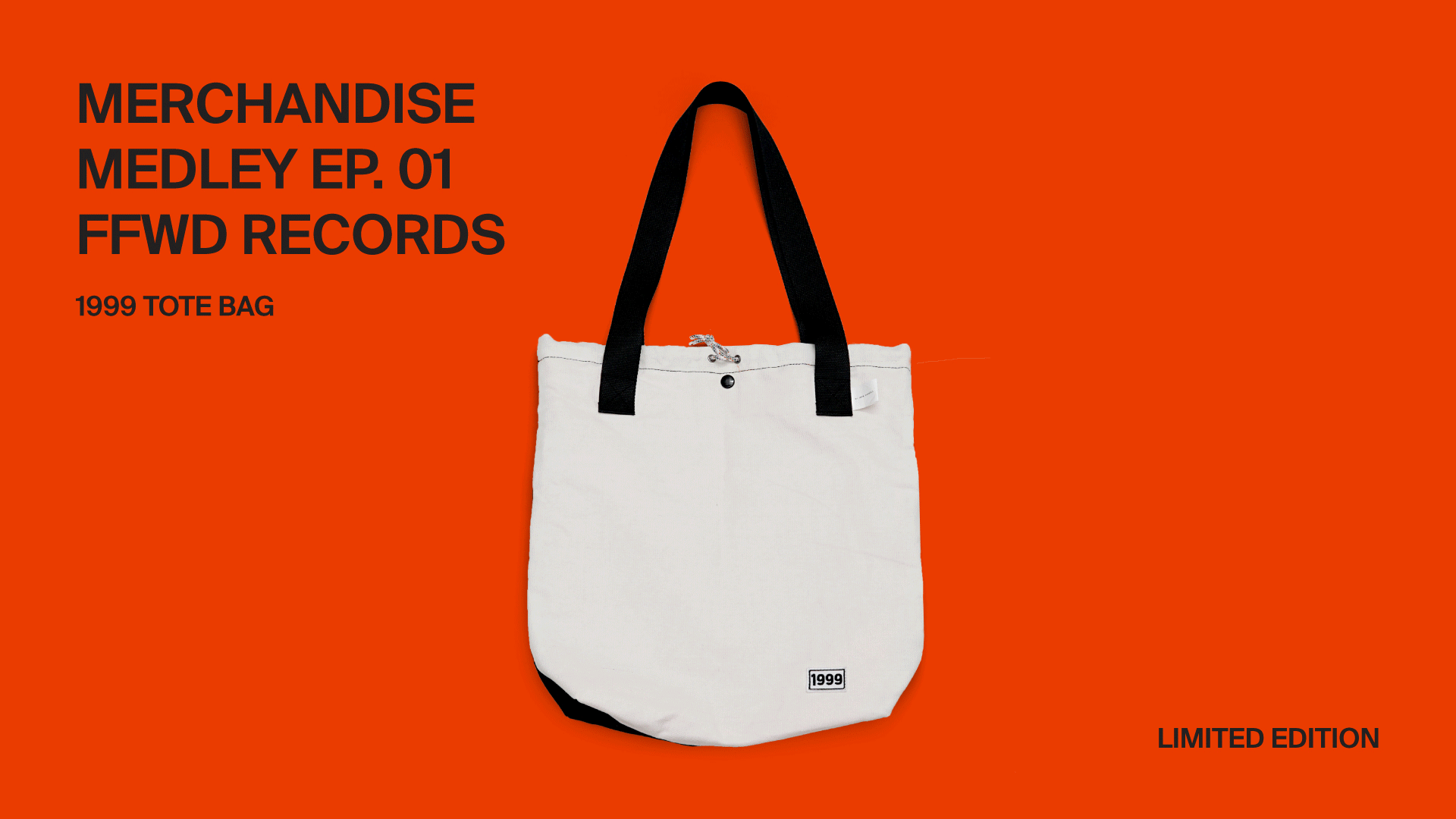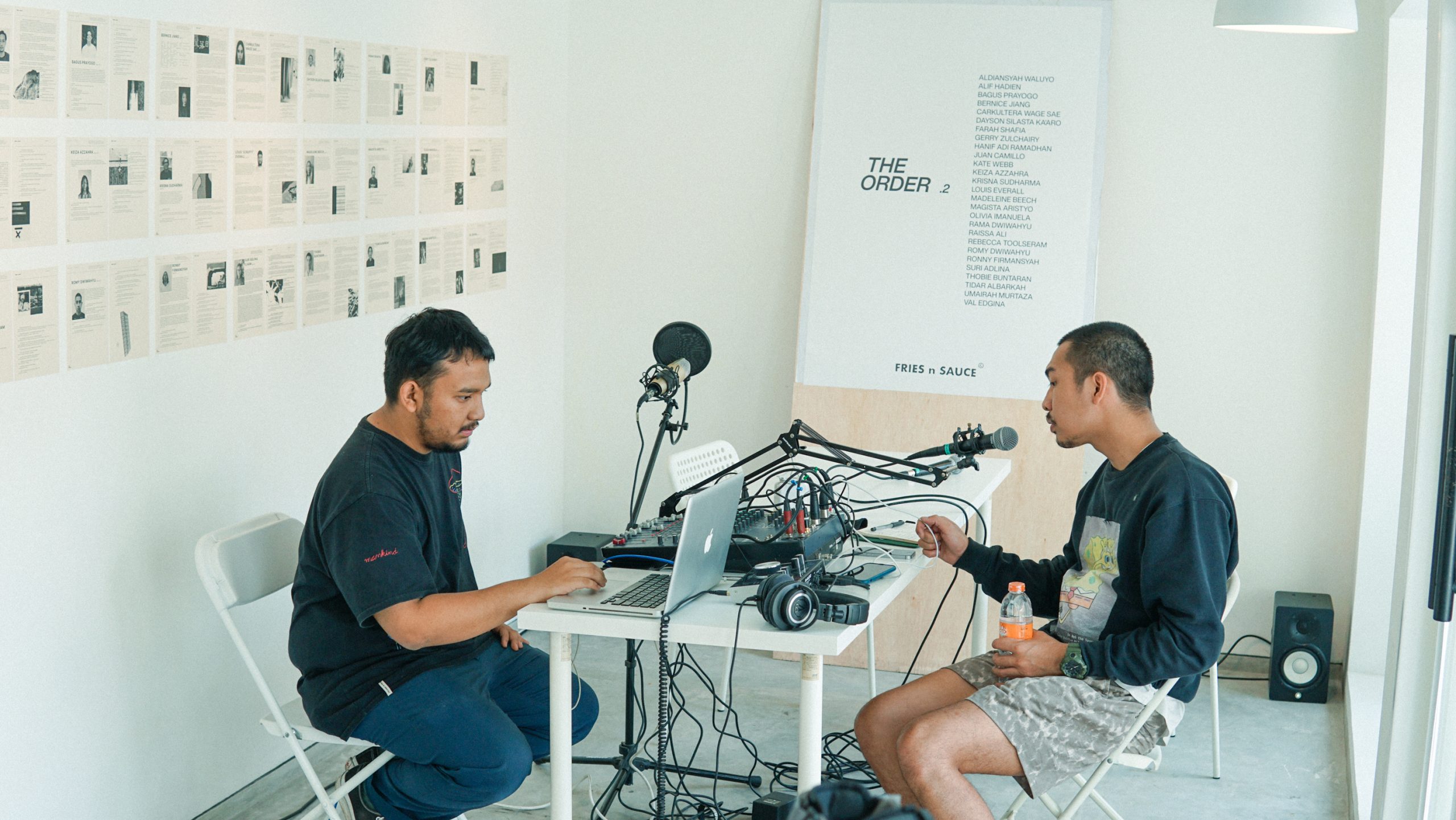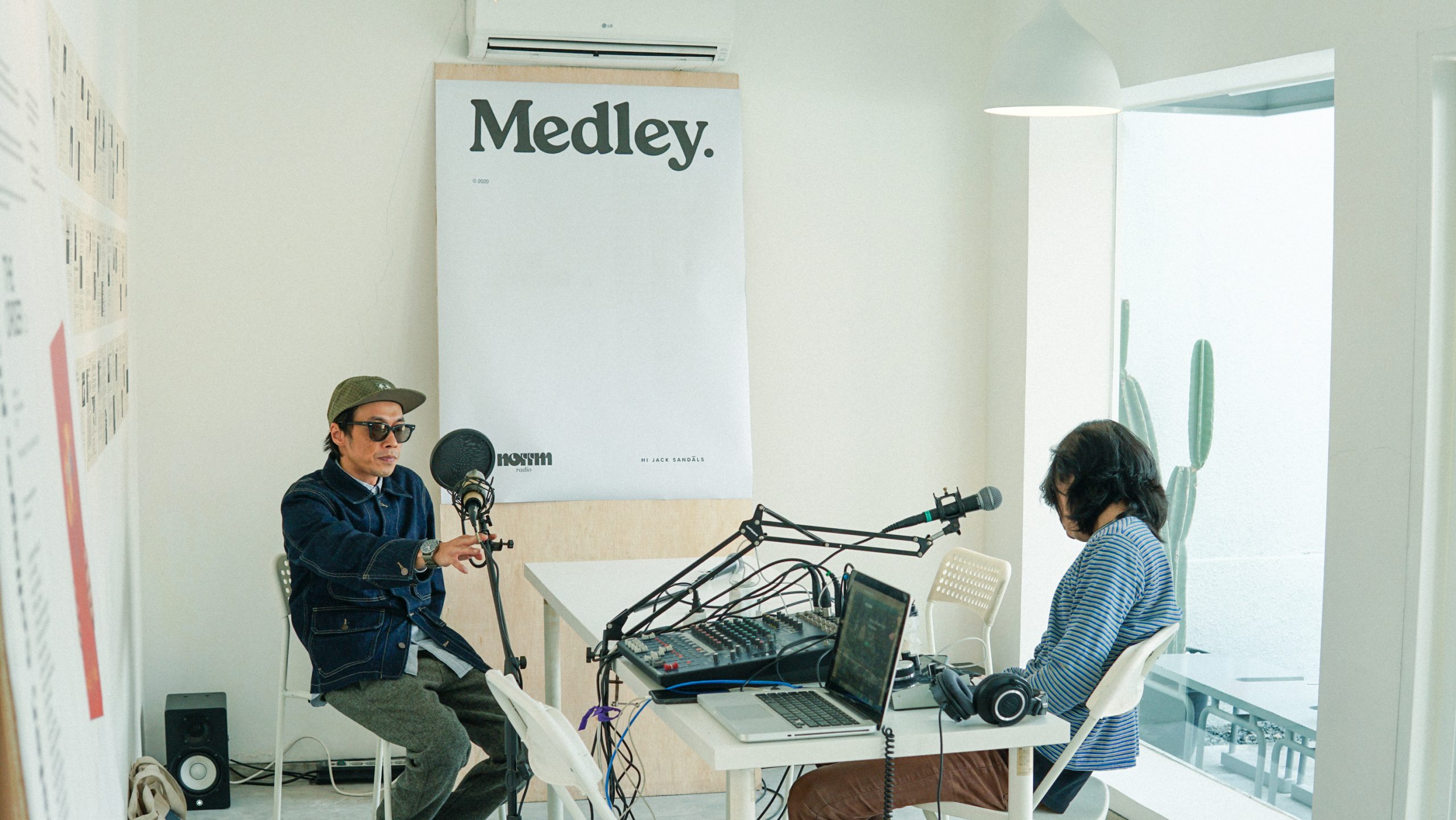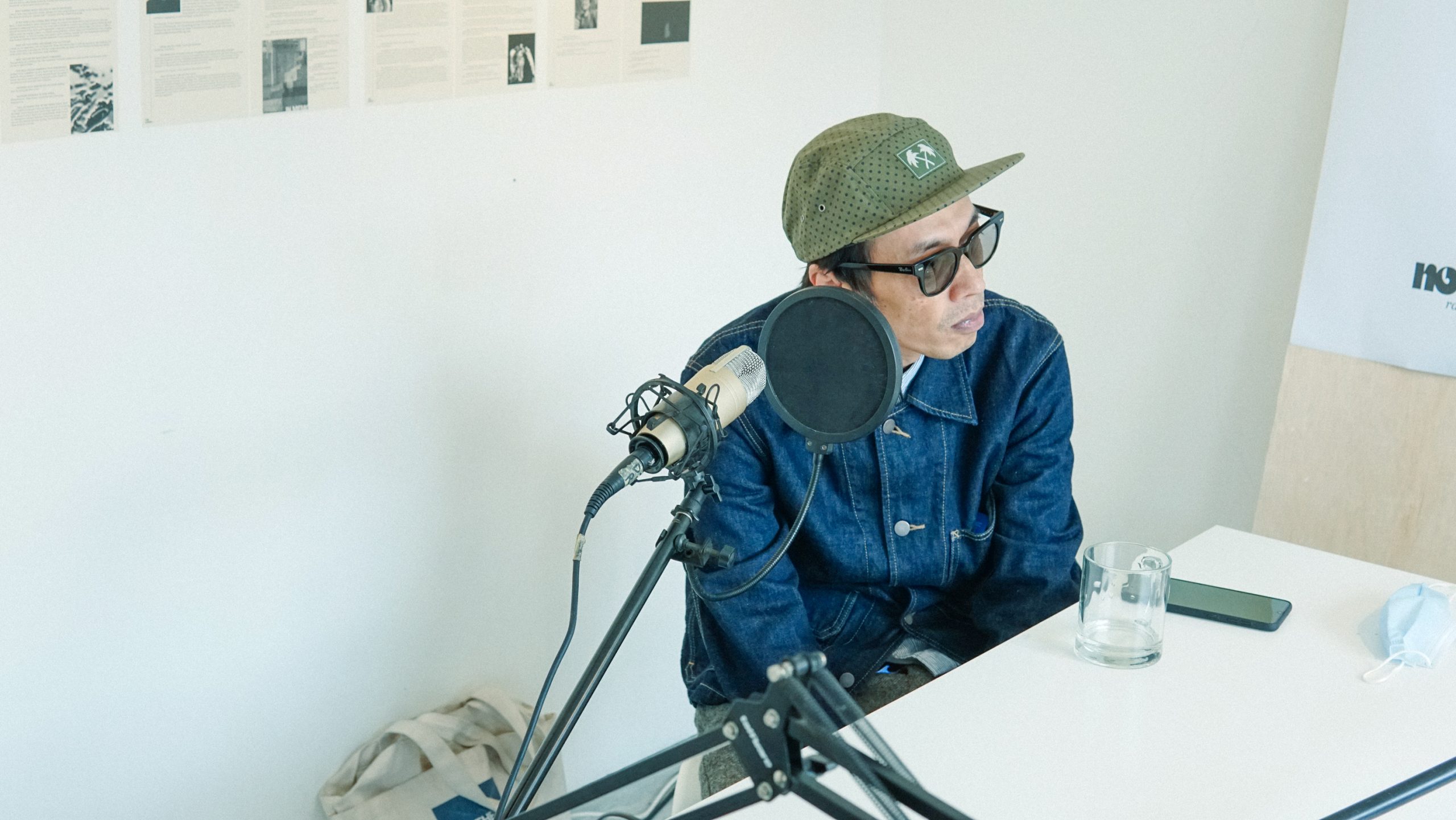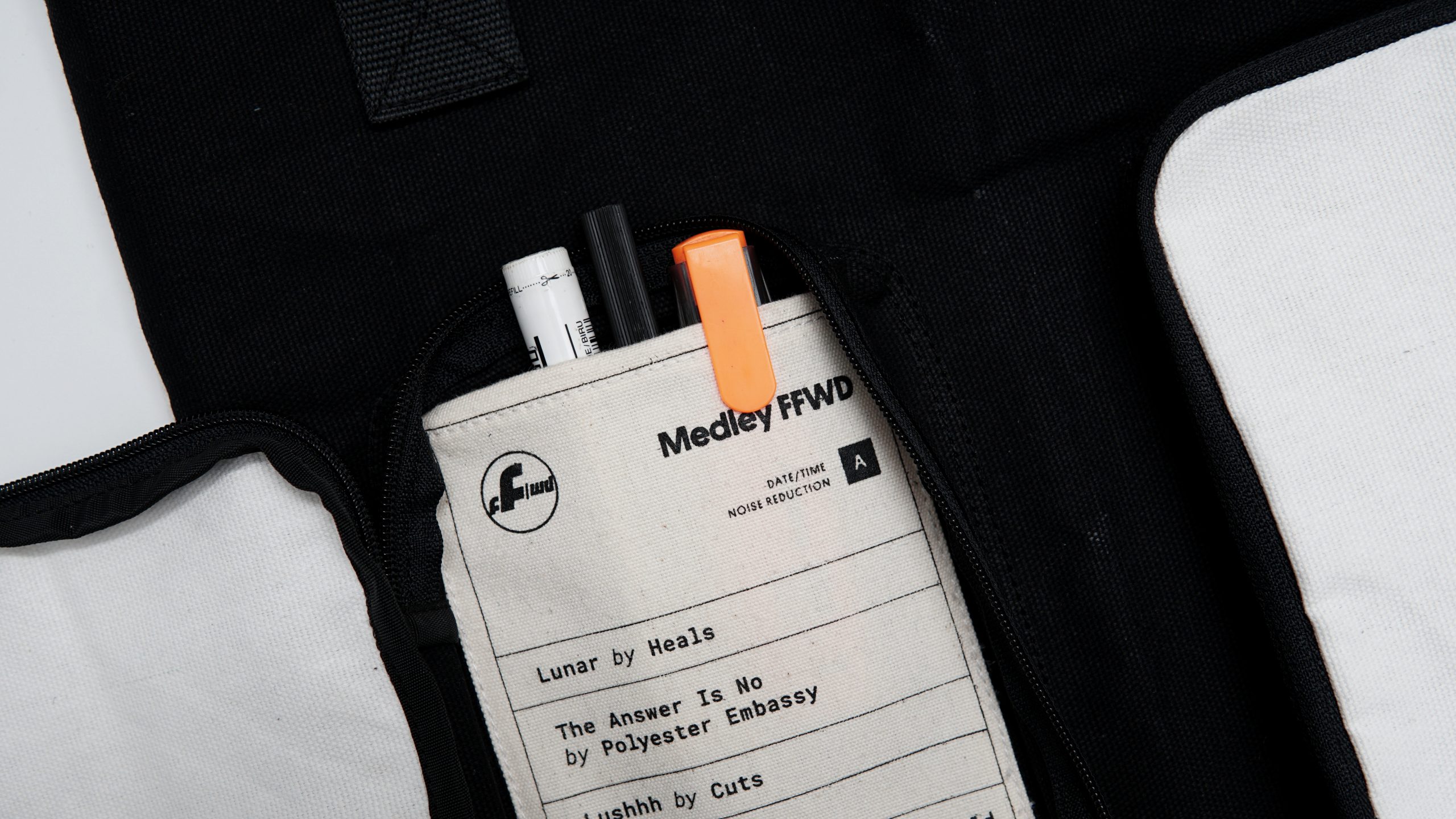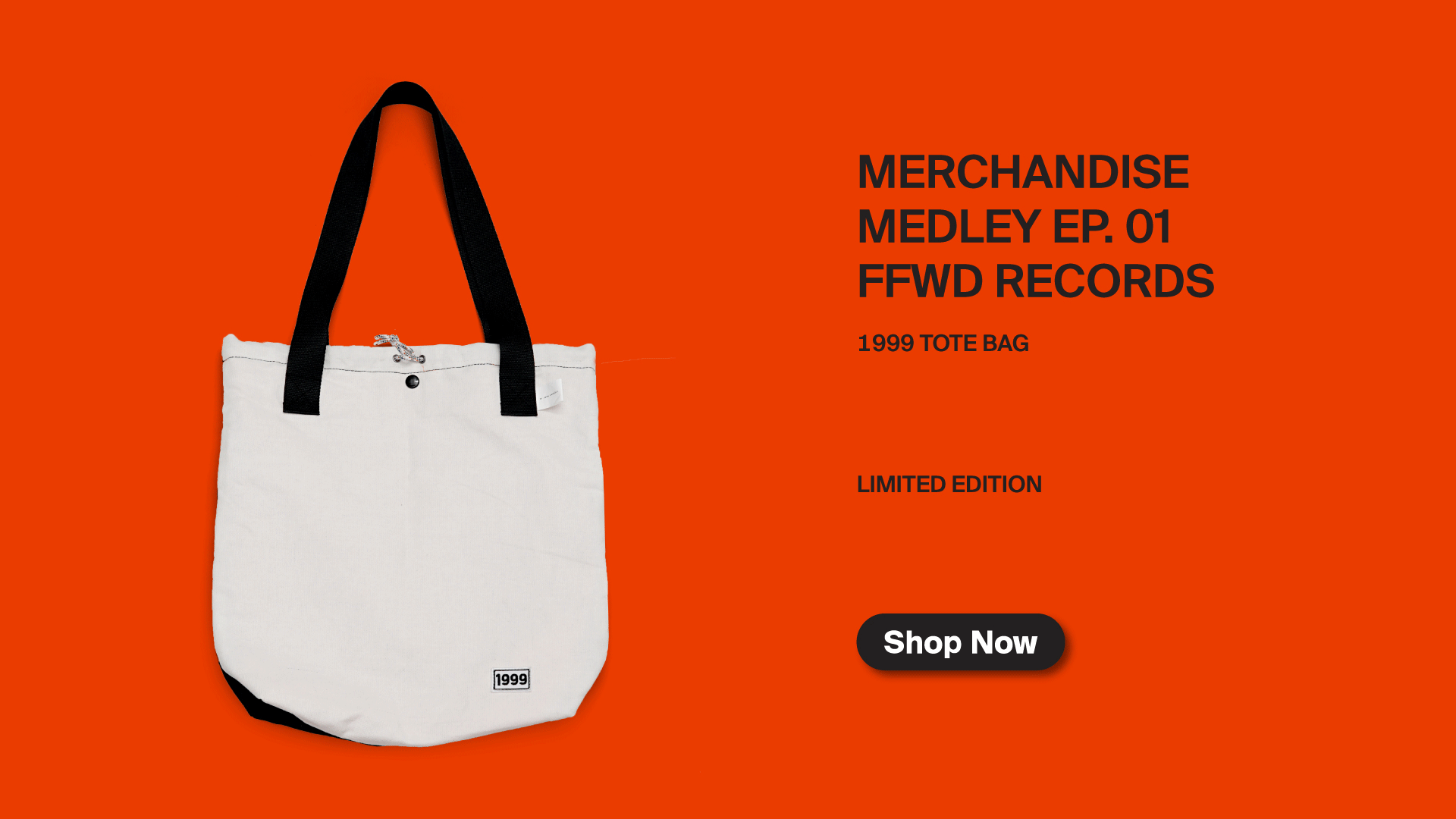No products in the cart.

MEDLEY EP. 01 – FFWD RECORDS
A Series of Talks and Conversations With Musicians, Producers and Record Labels, – Especially on the Other Side of the Untold and See How They Managed to Doing What They Love.
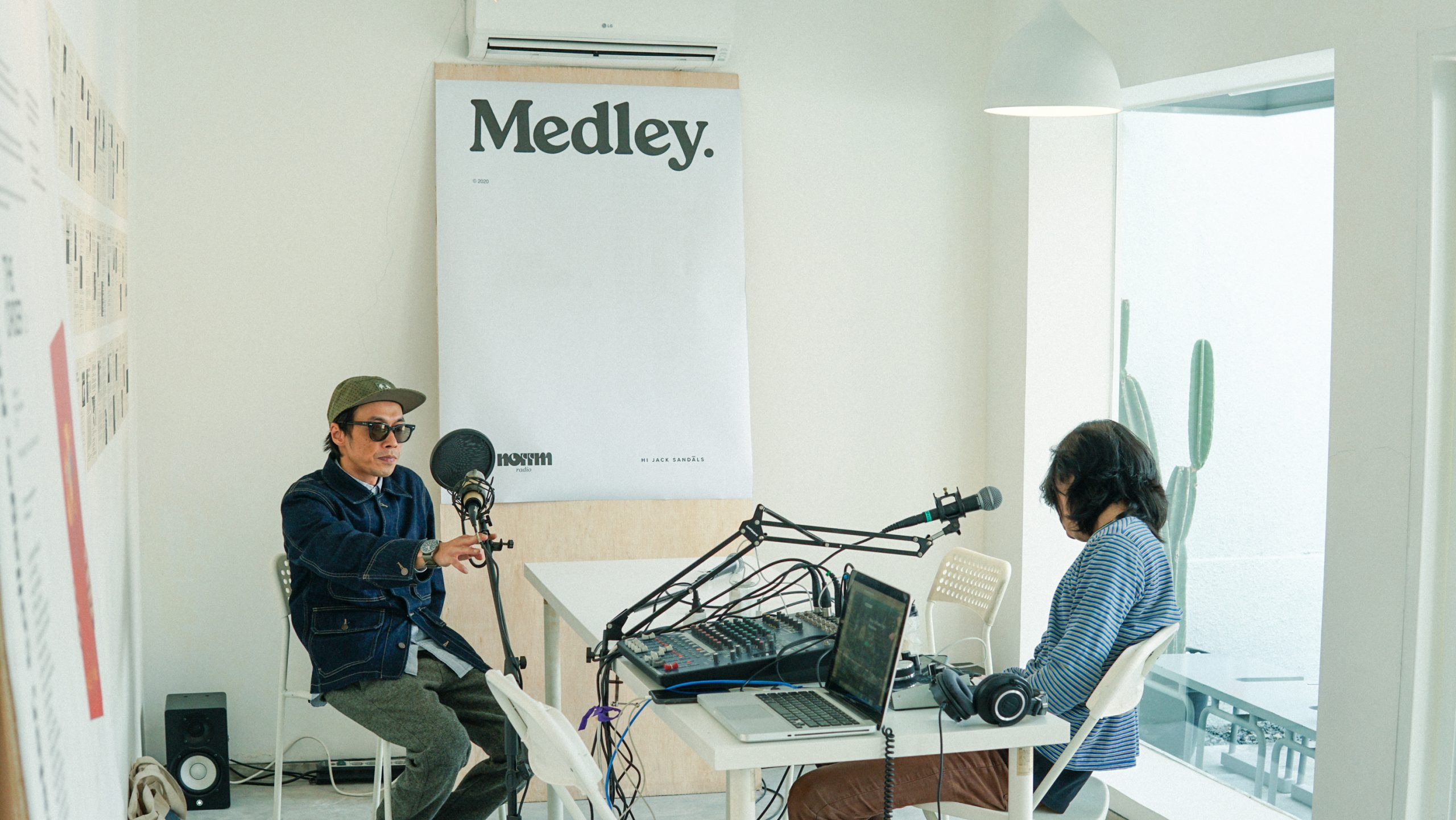
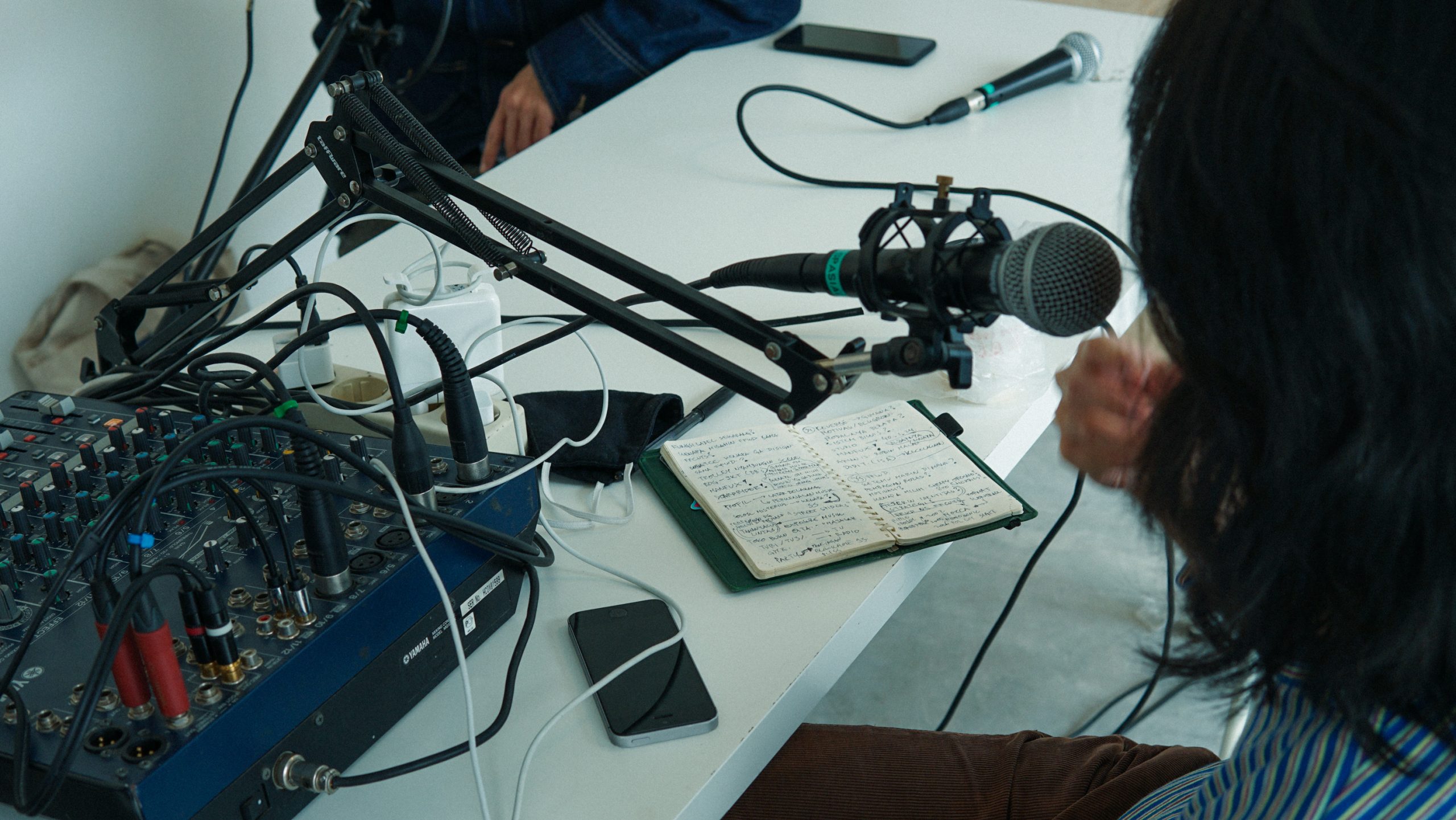
Designed To Encourage Real Connections, Personal Stories And Perspectives Exchange. This Series Compiles A Comprising Works And Stories, Highlighting Variety Esoteric Genres From Emerging And Established Record Labels In The Format Of A Online & Offline Activations. Capturing The Vibrant Of Indonesian And Global Music Scene From Emerging & Established Record Labels.
Medley is a monthly podcast run by Hijack Sandals in collaboration with Norrm Radio dedicated to discussions on Indonesian and/or international indie music with prominent figures, from label heads to producers to musicians themselves, as a way to provide an insight towards how significant labels, events and other musical milestones came to be.
For the first episode of the Medley series, Gerry of Irama Nusantara talks with 2 of the 3 founders of Bandung’s legendary FFWD Records, namely Helvi and Didit. FFWD Records were crucial instigators of the Indonesian indie scene’s flourishing in the 2000s. Run by the trio of Didit Eka Raditya, Marine Ramdhani and Helvi Sjarifuddin, the record label, founded in 1999, was responsible for breaking out top indie acts as Mocca, Polyester Embassy and The S.I.G.I.T, while also contributing to the development of Bandung’s nationally famed indie music scene in that era.
The discussion aims to provide an in-depth look at FFWD’s colourful history as a prominent Indonesian indie label, while also talking about certain events that shaped their mindset, from turning down a chance to feature in the Ada Apa Dengan Cinta soundtrack, to sharing their takes on the indie scene’s current condition.

Gerry: Hello, and welcome to the first edition of Medley. With me today are the founders of Bandung’s FFWD Records, Didit and Helvi who formed the label in 1999 and were crucial in breaking out some of the most notable Indonesian indie bands today and instrumental in the growth of Bandung’s indie music scene. But before all of that, I want to start from the beginning.
Gerry: Before you started FFWD, you guys had a store in Bandung called Reverse, which was pretty significant in the city selling skateboard merchandise and band merchandise too. After Reverse folded in 1998, what did you guys do?
Helvi: It was hard, Reverse had to fold because of krismon and business just became unsustainable real quick. But I still had the urge to make something. I just had to, because that’s just how I am. Eventually I started Airplane, the clothing line. I don’t think Airplane would have existed if Krismon never happened. From there, we wanted to do clothing, make a magazine… start a label, maybe.
Gerry: What came first though, Airplane or FFWD? And how did FFWD slowly develop in the beginning?
Helvi: They both were born at the same time. Again, we wanted to do both, without questioning the profit aspect. That was how FFWD was born. I remember we only had enough money to print tape covers, but not enough to actually duplicate the tapes [laughs]. That’s pretty funny.
But I had a good relationship with the tape duplicator guy. I was Puppen’s manager at the time, so that helped too. He’d always ask how much I wanted to print, I’d usually say a thousand. He would say “will you sell that much??” and I said yeah [laughs]. Ok Let’s do it! I think this was for when we released Cherry Orchard [from France].
Didit: Speaking of Cherry Orchard, FFWD started in 1999 right. We initially wanted to release local bands first. But at the time there weren’t any local Bandung bands that we thought was right for the label, so we started out by distributing albums from foreign indie pop bands. 800 Cherries [Japan], Cherry Orchard [France], Club 8 [Sweden].. you know, all of that.
Gerry: Why did you choose Cherry Orchard, or those foreign bands to release first? Weren’t there a lot of local bands around 1993 to 1994 that were alright, and that you hung out with?
Helvi: Nope. There weren’t really any good local indie pop bands in that timeframe. But this is indie pop yeah. If we’re talking about hardcore then it’s different. There were a lot of good hardcore bands at that time. It was pretty difficult in the beginning. Until we met Mocca.
Gerry: How did you guys meet Mocca?
Helvi: Mocca were kids from ITENAS. Their manager gave a demo tape to Marine. And I remember all 3 of us listening to the demo and liking it, so we decided to meet them and it started from there.
Gerry: But at the time, you already had a slew of foreign bands on your distribution roster. Was that your strategy all along, to release foreign bands first before local ones?
Helvi: No. We had no strategy of that kind, really. We just wanted to make an indie pop label.
Gerry: Back to Mocca, how did you guys eventually sign them?
Helvi: We used a real contract! I personally just wanted to do it casually, but in the business sense, it wasn’t wise. The concern was if they were hijacked by another label, who would benefit the least from that? The label. A lot of labels wanted to hijack them from us. If there was no contract, what would have happened?
Didit: The truth is shit can happen along the way. This is just a way to prevent or guard against it.
Gerry: Did you also have contracts with the foreign bands?
Helvi: Yeah we did. No matter how simple the agreement was, we realized that it was necessary. Before that, we didn’t have that kind of thinking. We still hold Mocca’s master tapes to this day.
Gerry: From 1999 to 2002, there weren’t many local releases on FFWD aside from Mocca’s first album. Why is that?
Didit: I forgot why, to be honest. I think their second album came out 2 years after the first one. But the thing is, at the time, there weren’t any bands that we felt were right for us. We didn’t really want to force ourselves.
Gerry: Speaking of that, what are the criteria for bands at FFWD?
Helvi: None, actually. If we like it, then we sign them. But the certain thing is that we have to meet them first. We have to see how they play live first. But if we like their songs even before that, then okay.
Gerry: What about in terms of making events for your roster?
Helvi: The thing about making events is that, we don’t want to wait on anyone. If we can do it, then we can do it. We did mainly make shows for the FFWD roster, like launchings and stuff. That’s a necessity. We had nobody to learn how to make events either, so we learned how to do it ourselves.
Didit: Nah, from there, after our launch shows became successful, then came the sponsors. We collaborated with certain sponsors on several events. We also collaborated with the scene figures in Jakarta like Indra Ameng, who would host shows for our bands in Jakarta and vice versa.
Helvi: So we made these events for FFWD, but along the way the scene in Bandung grew around it. There were a lot more bands in Bandung. So we later decided to make shows for bands even outside of our roster. And we would collaborate with friends in Jakarta, Surabaya, Yogyakarta, anywhere to make shows in their cities.
Gerry: Did you guys use those events as a way to look for more bands to add to your roster?
Didit: Initially, yeah, but not intentionally. We found Polyester Embassy that way.
Gerry: Ok, let’s move on to the mid-2000s. The independent music scene in Indonesia has gained traction. Many events are starting to be sponsored by certain companies. There was also Indiefest, which was sponsored by L.A Lights around 2006 or 2007, and FFWD agreed to make a show with them. Why did you choose to in the end, going against the DIY ethos you held for so long?
Helvi: Oh, for that collaboration to work, we laid out clear and strict instructions on what we want. I demanded that we were in control. If they didn’t want to, then alright, no show. But they agreed.
Gerry: Would you say that FFWD’s bargaining power was larger at the time?
Helvi: I don’t know about that, but we realized what could happen if we were too ignorant.
Gerry: From Indiefest, I guess you can say the independent music scene became more settled once there was money flowing into it.
Helvi: Yes, finally! Indiefest exposed a lot of bands to a lot of people, so I guess that helped a lot. When before it was hard to get sponsorship money for indie events, now it became easier. Everything opened up. And that greatly benefitted FFWD and many other labels in the scene too.
Didit: But don’t forget, the sponsors also benefitted a lot from the scene. If there wasn’t anything for them, then they wouldn’t sponsor us in the first place.
Gerry: Did your experiences with large companies as sponsors encourage you to go bigger, and start inviting larger, foreign bands to Indonesia [through Soundshine, which FFWD co-founded]? The first band you invited during this time was Kings of Convenience, right?
Didit: That’s right.. It was more because they’d actually want to come here and play, so for us, it was just, “let’s do it!” We never saw things like that as a business opportunity or whatever at the start, or long term. We thought about things like target number of crowds etc. only in the process of running the shows.
Helvi: We’ve always prided ourselves with doing only things that we feel is right for us. For example, one time there was this film that wanted to include FFWD artists in their soundtrack, Mocca especially. But I don’t know, at the time our concerns were “how would the contract work?” or what if they wont pay us as they should? Especially considering at the time, bands will only get a small amount of money making soundtracks.
Gerry: What soundtrack was this?
Helvy: I think it was Ada Apa Dengan Cinta. The first one [in 2002]. They wanted Mocca in their soundtrack. But in the end, it didn’t happen. It was because the studio didn’t give them a lot of time to work on a song, and then they were very, very demanding when it comes to timelines and conditions. We thought it was just too much of a hassle and so we all agreed to turn it down.
Gerry: Now, back to the L.A Lights Indiefest. The event helped you build your roster, but it also helped other, smaller Bandung labels to flourish as well. There seemed to be an underlying perception that these labels happened because many bands thought FFWD was too big and therefore unreachable for small scale bands. How do you respond to that?
Helvi: Was that what was happening? [laughs] I didn’t know! No, I think we were just too into our own label to pay attention to that kind of thing. If there are many labels, then that’s a good thing anyway. We’d take any band we feel is right.
Didit: We never saw ourselves as a “big” label. And we don’t want to. We just create. But then again, our status as a label is not determined by us, you would have to ask other people for that kind of opinion.
Gerry: From 2002 to 2010, there were a lot of releases on FFWD. How come you didn’t release as much as you did from 2010 onwards?
Didit: I’m not really sure. There are a lot more bands now but maybe it’s because the culture of self-releasing has come into the fore too. We’ve gotten to the point where we can only release the ones that we really like, due to the shortage of resources and funds.
Gerry: So it’s more of a financial reason?
Helvi: That’s right. But if we were to find 3 bands we really like, we’d immediately try to release all 3. Not much have caught our eyes so far.
Gerry: Today’s independent scene is able to grow alongside the mainstream scene, to the point where you can’t differentiate what’s indie and what isn’t. What’s your take on that?
Didit: It’s more fun, that’s for sure! Back then, indie bands don’t have a chance in playing big events like Soundrenaline. Nowadays, they’re the norm.
Gerry: Today’s culture is all about openness and easy access of music. Especially through digital means. What do you think about the digitalization of music?
Helvi: Not much. But I observed that there are way less people buying physical releases. Many bands are impatient in releasing their stuff, and with the internet, its easier now to immediately upload their songs. That access gives some people less reason to buy their records. But also it’s because there’s not a lot of record stores. Back then, there was the thrill of opening a tape’s liner booklet and seeing all the people responsible for that release. I don’t think that thrill exists anymore today.
Gerry: Going back to the culture of self-releasing. Some of your former artists, like Mocca, have long left FFWD after their contracts run out and began to go on their own. Considering this, do you think a record label is still needed for musicians?
Didit: Again, it depends on the band whether or not they think they need one or not. Basically a band would need distribution, publishing and PR. Can a band do them all themselves? Of course they can, they just need a team. If a band aren’t bothered in dealing with all those things themselves, then a label can help them do that.
Helvi: But they would need to invest more money in building the team and resources. If they feel like they can, then that’s fair enough for them.
Gerry: So with this new, self-releasing culture, what do you think artists must do in order to help develop their scenes?
Helvi: Well if you’re talking about helping develop the scene and its ecosystem, I guess it’s important to never ask “how much money do you have” first before actually doing something. Just do it first, release that album, whatever, the results will pay off in some way. We need that kind of thinking in this era of startup-minded thinking and money-first culture. Go to anyone who can help you fulfill that goal, encourage the collaboration. That’s what cities like Bandung need, considering there’s a lot of people that can lend a hand. If not, then Bandung’s scene will die. We cant let Bandung to become a purely business minded city, because if all you think about is the business side of things, then the scene becomes less interesting. People are attracted to Bandung due to the strength of the subcultures and the communities, and that’s what partially responsible for the indie scene’s development back then.
Didit: Be it directly or indirectly, we live in this community and depend on each other’s help. Therefore, we all do our part to sustain each other. FFWD is open to working with anyone, for the sake of the scene’s livelihood.
Gerry: One last question, before we wrap up. FFWD has achieved so much in the 20+ years it has been active. What else is there for you to want to do?
Helvi: Keep on releasing artists, that’s for sure. Right now, some of the current artists we have on our roster include Lizzie, Heals and Sky Sucahyo, and they’ll release with us when they’re done with their material. We’d love to do more events after this COVID-19 thing goes away. Hopefully next year.
Mixtape by FFWD Records

Medley Merchandise
A merchandise collaboration of Hi Jack Sandals & FFWD. This tote bag is designed to appreciate music. The shape is taken from the design of PIÉCE Tote Bag with 2 front pockets & hidden details of musical influence.
